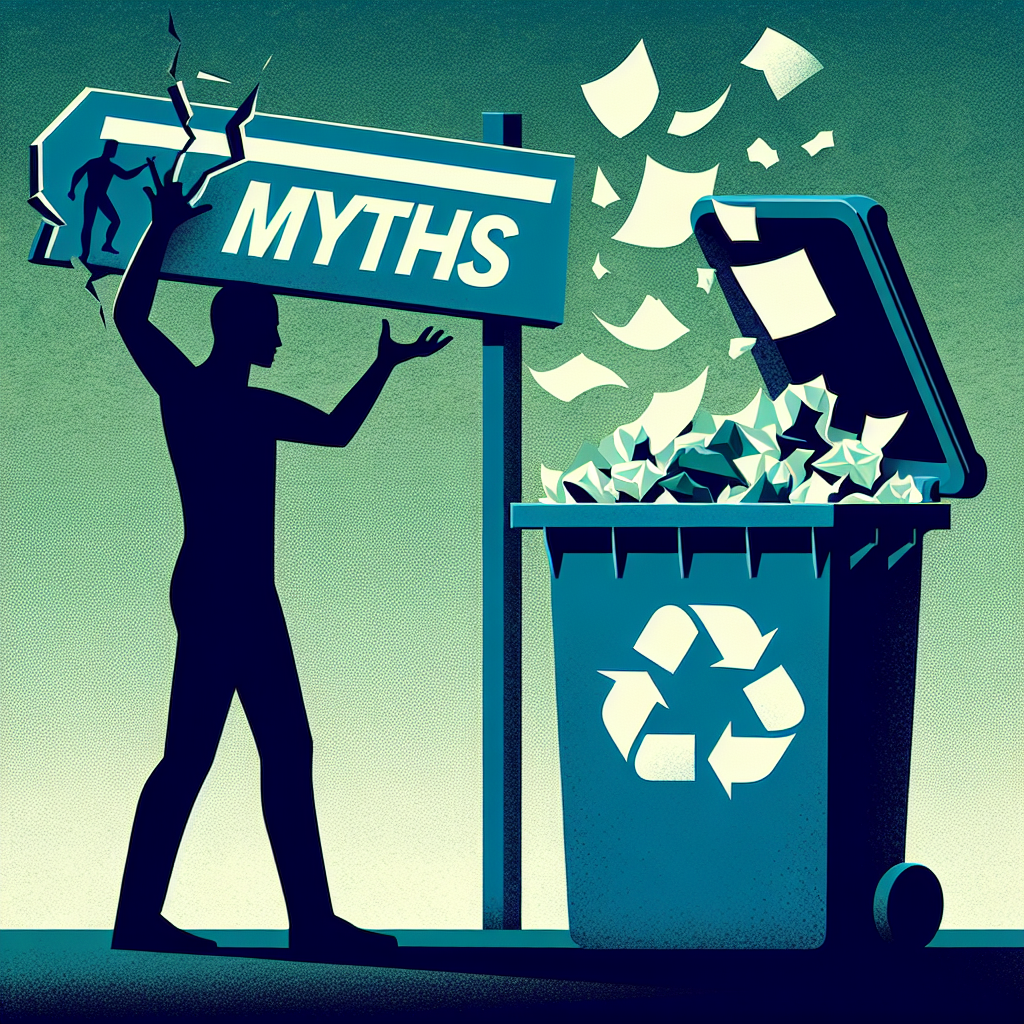As global awareness of environmental issues grows, recycling has become a cornerstone of sustainable living. However, despite its importance, many myths and misconceptions surrounding recycling persist. This article aims to clarify the realities of recycling, dispel common myths, and provide practical guidance for more effective waste management.
Myths 1: “Recycling is the Ultimate Solution to Waste.”
Reality: Recycling is an essential step in managing waste, but it’s not a silver bullet. The real solution lies in a comprehensive approach to waste management, which includes reducing consumption and reusing materials. By prioritizing reduction and reuse over recycling, we can diminish the amount of waste generated in the first place.
Myth 2: “All Plastics Can Be Recycled.”
Reality: Not all plastics are created equal. While many household plastic items have recycling symbols, only some are accepted by local facilities. Items like plastic bags, food containers, and polystyrene foam are frequently not recyclable curbside. Familiarizing oneself with local recycling guidelines is crucial for effective sorting.
Myth 3: “Recycling Uses More Energy than It Saves.”
Reality: While recycling processes require energy, they typically consume less energy compared to producing new materials from raw resources. For instance, making aluminum cans from recycled materials uses 95% less energy than producing them from virgin aluminum. Thus, in many cases, recycling is a more energy-efficient alternative.
Myth 4: “If I Toss Everything in the Recycling Bin, It Will Be Recycled.”
Reality: Contamination is a significant issue in recycling streams. If non-recyclable items or contaminated materials (like greasy pizza boxes) are mixed in with recyclables, entire batches can be rendered unusable. It’s crucial to clean and properly sort recyclables to improve the chances that they will be processed correctly.
Myth 5: “Once Recycled, Products Can Be Recycled Indefinitely.”
Reality: While recycling can extend the life of materials, most products can only be recycled a limited number of times before they degrade in quality. For example, paper fibers shorten with each recycling cycle. This reality emphasizes the importance of reducing and reusing materials alongside recycling.
Myth 6: “Recycling Is Expensive and Ineffective.”
Reality: Although establishing recycling programs can require upfront investment, studies show that they can lead to long-term savings on waste disposal. Moreover, recycling can stimulate local economies by creating green jobs and industries, fostering community engagement, and contributing to a circular economy model.
Tips for Effective Recycling
To make the most of your recycling efforts, consider the following tips:
-
- Know Your Local Guidelines: Familiarize yourself with your community’s recycling rules, including what items are acceptably recyclable and how they should be prepared.
- Know Your Local Guidelines: Familiarize yourself with your community’s recycling rules, including what items are acceptably recyclable and how they should be prepared.
-
- Clean Your Recyclables: Rinse out containers to remove any food residues before placing them in your recycling bin. Contaminated items can spoil whole batches of recyclables.
- Clean Your Recyclables: Rinse out containers to remove any food residues before placing them in your recycling bin. Contaminated items can spoil whole batches of recyclables.
-
- Reduce and Reuse First: Before recycling, try to reduce your consumption and find ways to reuse items. This not only cuts down on waste but also reduces the demand for new products.
- Reduce and Reuse First: Before recycling, try to reduce your consumption and find ways to reuse items. This not only cuts down on waste but also reduces the demand for new products.
-
- Educate Others: Spread awareness about proper recycling practices. Community engagement can significantly enhance the effectiveness of recycling programs.
- Educate Others: Spread awareness about proper recycling practices. Community engagement can significantly enhance the effectiveness of recycling programs.
-
- Choose Products Wisely: When making purchases, consider products with minimal or recyclable packaging. Opt for items that can be reused or have a sustainable life cycle.
- Choose Products Wisely: When making purchases, consider products with minimal or recyclable packaging. Opt for items that can be reused or have a sustainable life cycle.
Conclusion
Understanding the facts about recycling is essential for fostering a more sustainable future. By debunking myths, committing to better practices, and recognizing that recycling alone won’t save the planet, we can collectively work towards reducing waste. Embracing a comprehensive approach that integrates reduction, reuse, and responsible recycling will help us make significant strides toward environmental stewardship. Through informed action and community engagement, we can all contribute to a healthier planet.




